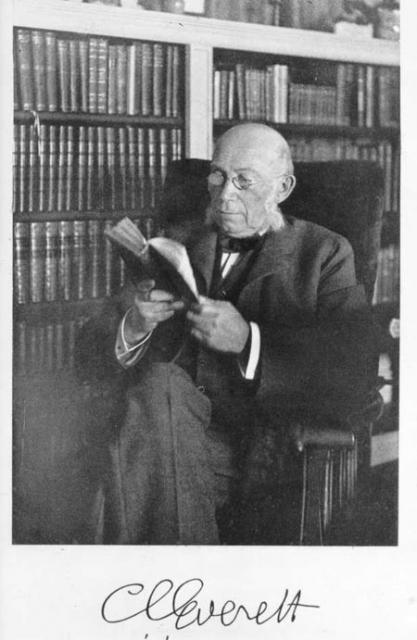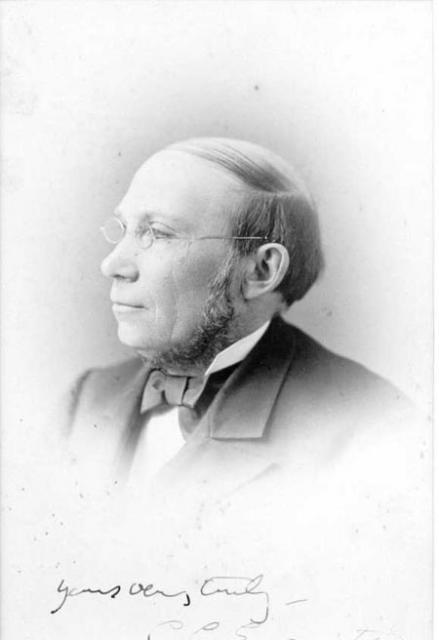Charles Carroll Everett
- Bussey Professor of New Testament Criticism and Interpretation, 1869-1900
- Dean of the Faculty of Divinity, 1878-1900
Charles Carroll Everett was born in Brunswick, Maine, on 19 June 1829, the son of Ebenezer Everett, a lawyer and the first cousin of the orator and statesman Edward Everett, and Joanna Bachelder Prince Everett. He graduated from Bowdoin College in 1850. After graduation, he studied at the Bowdoin Medical College and in Berlin under Hegel's successor, Georg Andreas Gabler. From 1853 to 1857 he taught modern languages at Bowdoin (for the last three years he was also Librarian), and his tenure was vetoed by the Overseers because he was a Unitarian. He then entered Harvard Divinity School and graduated in 1859. He served as minister of the Independent Congregational (Unitarian) Church in Bangor, Maine, from 1859 to 1869. In 1869, he published his The Science of Thought, a treatise on the principles of human thought, that attracted the attention of the Harvard Corporation, who that year called him to the Bussey Professorship. As early as 1872, he taught a course in "East Asiatic Religions," perhaps the first course in comparative religions given in the United States. His two regular courses in theology were "The Psychological Elements of Religious Faith" and "Theism and the Christian Faith."
Everett was a neo-Hegelian. "First in the lectures of Professor Gabler," he wrote, "and afterwards in the works of Hegel himself, I found the rudiments of a system of logic that charmed me with its beauty and simplicity." His works show the broad range of his interests: Religions before Christianity (1883), Fichte's Science of Knowledge (1884), Essays on Poetry, Comedy, and Duty (1888), Ethics for Young People (1891), and The Gospel of Paul (1893). A collection of his essays, Essays, Theological and Literary, was published (1901) after his death.
From his youth, he was "of a delicate constitution" and blind in one eye. When during his term as Dean, the Harvard faculty proposed to have each applicant pass a physical examination and give promise of living long enough to justify the investment, he gently noted that such an examination would have ruled him out and that his parents were themselves in doubt whether he was "worth raising." The motion was promptly withdrawn.
Known as a consummate teacher, he was remembered by many students as one of the greatest inspirations in their lives. F. G. Peabody remembered him this way: "It was permitted to a generation of students for the ministry to be guided and restrained by a character so self-effacing as never to be conspicuous, yet so convincing as to communicate both thought and life."

Sources of information:
American National Biography. Edited by John A. Garraty and Mark C. Carnes. New York: Oxford University Press, 1999 Francis G. Peabody, Reminiscences of Present-day Saints. Boston; New York: Houghton Mifflin Company, 1927.
